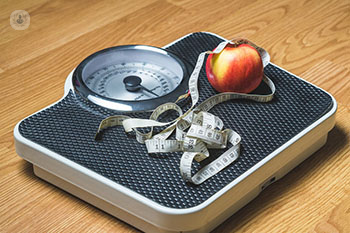

Triglycerides are fats found in the blood. They are produced by the liver, and found in foods we consume. Any calories not needed after we eat are converted into triglycerides and stored in fat cells, to be later released into the blood and used as energy. Our body needs triglycerides as a way of storing energy, but too much can be a bad thing for the body and can lead to obesity and cardiovascular disease.

What conditions do high triglycerides cause?
High levels of triglycerides don’t cause symptoms by themselves, but they can lead to more serious conditions. Very high levels of triglycerides can cause pancreatitis, an inflammation of the pancreas, causing abdominal pain, fever, nausea and vomiting, and loss of appetite. High levels of triglycerides can also be a signifier of high cholesterol, which can lead to cardiovascular disease, which is caused by the build-up of fatty deposits in the veins and arteries. Other conditions that may be linked to high triglycerides are diabetes, hypothyroidism, kidney disease and metabolic syndrome.
Signs of high triglycerides
Signs that you may have high levels of triglycerides include: high blood pressure, fat around the belly, high blood sugar levels. High triglycerides can lead to metabolic syndrome, a collection of related metabolic disorders, that increase your chances of developing cardiovascular disease, diabetes, stroke, and having a heart attack.
Around 23% of adults are affected by metabolic syndrome.
How can you lower triglyceride levels
Positive health and lifestyle changes will improve the levels of triglycerides in your body. Limiting the amount of fat and sugar you consume, being more active to burn off the triglycerides stored as fat for energy, limiting alcohol intake, staying at a healthy weight if you manage to lose weight. Quitting smoking can help reduce levels of triglycerides, as smoking can cause the body to store fat more readily.
Foods that can help lower triglyceride levels
Consuming healthier foods such as fruits, vegetables, whole grains, fish, low fat dairy foods are all thought to reduce the triglyceride levels. Reducing salt and sugar intake will also help, as will fish oil supplements.
Cutting down on alcohol is useful in reducing triglyceride levels, as large intakes of alcohol, even such as when binge-drinking can increase triglyceride levels.
